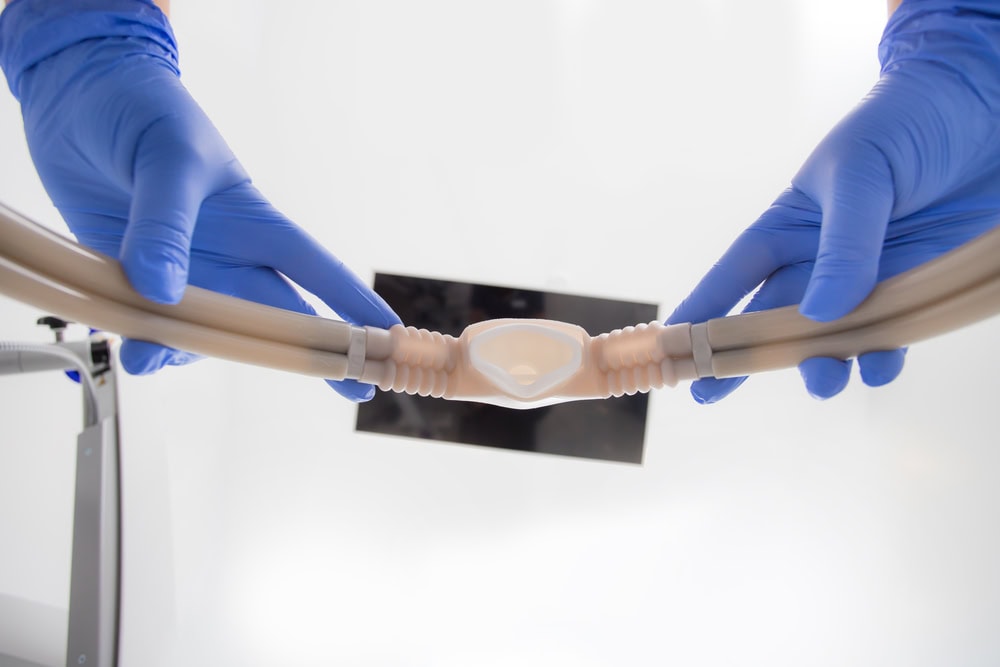Dentures are an essential tool for many individuals, offering a wide range of benefits that can be life-changing. From providing improved comfort and quality of life to restoring the look and function of natural teeth, dentures can provide a remarkable boost to one’s well-being.
This article will provide an overview of dentures and the advantages they can offer, as well as tips for caring for and using dentures to the fullest.
Introduction to Dentures
Dentures are prosthetic devices that are designed to replace missing teeth. They are often referred to as false teeth or artificial teeth and are available in two types: partial dentures and complete dentures. Partial dentures are used when some natural teeth remain, while complete dentures are used when all teeth are missing. Dental implants can also be used to replace missing teeth, but they are not as common as dentures.
Partial dentures are made of acrylic and metal, and they are designed to fit around the remaining natural teeth. They include artificial teeth that attach to a gum-coloured base, and they replace the teeth that are missing. Complete dentures are made of acrylic and are designed to fit over the gums. They replace all of the missing teeth and help to restore the esthetics of the smile.
In addition to restoring the esthetics of the smile, dentures also help to improve the ability to chew and speak. When dentures are worn, it is important to chew slowly and avoid sticky or hard foods. Soft foods should be eaten to prevent food particles from becoming trapped underneath the denture.
Permanent dentures are also available, and they can last up to five years. They are used to replace missing teeth and are designed to fit securely in the mouth. They are held in place with metal clasps and are secured with dental adhesive.
Types of Dentures
Various types of prosthetic dental appliances are available to address the needs of individuals with missing teeth. Gum disease, tooth decay, and injury can result in tooth loss, and dentures are a way to restore the natural look and feel of the teeth and gums. Dentures come in several varieties, including conventional dentures, removable dentures, and partial dentures.
Conventional dentures are full sets of upper and lower dentures that are placed in the mouth after any remaining teeth are extracted, and the gum tissue has healed. These full dentures are created from an acrylic resin that is moulded to fit the shape of the mouth, and metal clasps may be used to hold them in place.
Removable dentures, also known as partials, are used when some of the natural teeth are still present. They are created from a combination of plastic and metal and are affixed to the remaining natural teeth with metal clasps. They are removable and should be cleaned daily.
Partial dentures are specifically designed to fill in the gaps between natural teeth. They are typically made from acrylic resin and are held in place with dental adhesive or metal clasps. They are designed to be removable and should be removed daily for cleaning and to allow the gums to rest.
No matter the type of denture, it is important to see a dentist regularly to check for signs of bone loss, gum irritation, and other potential issues. For those with dentures, special cleansers and denture adhesive can be used to ensure a comfortable, secure fit. With proper care and maintenance, dentures can last for years.
Benefits of Dentures
The use of dentures can offer a range of benefits for those with missing teeth. Dentures can improve facial muscles by providing support and a natural look. Traditional dentures and implant-supported dentures can both achieve this. Temporary dentures can also offer support while permanent dentures are being fitted.
Dentures also provide different material options. They can be chosen to match the colour and shape of the remaining teeth, creating a natural look. Additionally, denture materials can be chosen for a more comfortable fit and to suit individual needs, such as allergies or sensitivities.
Another benefit of dentures is that they minimise ill-fitting dentures. Implant-supported dentures provide a more secure fit, reducing the need for frequent adjustments. Implant-retained dentures are held in place by implants, reducing the risk of ill-fitting dentures. Denture cleaners and fixatives can also help keep dentures in good condition, reducing the risk of ill-fitting dentures.
In addition, dentures offer a cost-effective solution for those with missing teeth. They typically cost less than other dental solutions like implants or bridges. Dentures can also be removed and replaced if necessary, eliminating the need for costly repairs.
Overall, dentures provide a range of benefits for those with missing teeth. They improve facial muscles, offer different material options, minimise ill-fitting dentures, and provide a cost-effective solution.
How to Clean Dentures
Proper cleaning of dentures can help to maintain their quality and condition. Modern dentures are composed of a metal framework and denture teeth that are attached to a plastic base. The metal framework fits over the gums and supports the denture teeth, which can be made to look and feel like natural teeth. Taking care of dentures is essential, as it prevents bad breath, soft tissue irritation, and normal wear to the denture teeth and metal framework.
It is important to use a soft-bristled brush and a denture brush to clean the denture teeth and metal framework. The soft-bristled brush should be used to clean the soft tissue that is around the denture teeth. The denture brush should be used to scrub the denture teeth and metal framework to remove any food or plaque that has built up. It is important to replace the brush regularly as, over time, they can become worn and ineffective.
Inspecting the denture for any signs of wear or damage is also important. If any sore spots or damage is observed, it is recommended to seek professional advice from a dental prosthetist, who can advise on how to address the issue. They can also make adjustments to ensure the dentures fit properly and are comfortable.
Proper care is essential to ensure the longevity of dentures. Brushing and cleaning the dentures daily and inspecting them for any signs of damage can help to ensure they remain in good condition and provide maximum comfort for those who have experienced tooth loss.
Diet and Dentures
Eating a balanced diet can be important for those with dentures. Proper nutrition is essential for a healthy mouth, and this includes adequate nutrition for those wearing dentures. Having a proper diet is important for denture patients in order to maintain their denture surface, ensure a proper fit of their dentures, and preserve their jaw bones. While dentures can provide many benefits, they are not an alternative to a balanced diet and can still require proper cleaning and maintenance.
Food debris can become trapped between dentures and the gums, and this can lead to bacteria growth. It is important for denture wearers to not only clean their dentures daily but also to eat a balanced diet that includes soft foods. Eating soft foods helps to prevent food debris from becoming trapped and, as a result, reduces denture cleaning time. Additionally, dentures can become loose when denture glue is not used, and this can be prevented by eating foods that help maintain the jaw bone.
In order to receive the full benefits of dentures, it is important also to have a balanced diet. This diet should consist of foods that are low in sugar and fat and high in proteins, vitamins, and minerals. Eating a healthy diet can help maintain denture fitting, reduce the amount of debris trapped, and prevent jaw bone deterioration. For those who are unable to eat a balanced diet, dental bridges are an option and provide many of the same benefits as dentures.
Overall, having a balanced diet is essential for those with dentures. Eating the right foods can help maintain the denture surface, fitting, and jaw bone. Additionally, eating the right foods can reduce the amount of food debris that can become trapped in the mouth and help reduce the amount of time spent cleaning dentures.
Candidates for Dentures
Candidates for dentures often include those with several missing teeth, a narrow jawbone, or those who have difficulty eating solid foods. It is important to note that the decision to get dentures is a personal one and should be discussed thoroughly with a dentist. Dentures can be made of acrylic or a combination of acrylic and human teeth, and they may require surgical intervention and a bone graft.
When considering a denture, it is important to know that it will need to be cleaned daily with denture cleaner and toothpaste. Additionally, dental insurance providers may cover some or all of the costs associated with dentures.
The benefits of dentures are numerous, as they can restore a person’s ability to eat and speak normally and improve the overall appearance of the mouth. Additionally, dentures can provide much-needed support to the facial muscles and help improve the overall facial structure. However, it is important to note that dentures require daily care, including brushing and cleaning with denture cleaner and toothpaste.
For those looking into dentures, it is important to consult with a dentist to determine the best option and to discuss any potential risks associated with the procedure. Additionally, it is important to know that dental insurance providers may cover some or all of the costs associated with dentures.
Ultimately, dentures can provide a valuable solution for those with several missing teeth, a narrow jawbone, or difficulty eating solid foods, and they can be an effective way to restore a person’s confidence and improve their quality of life.
Alternatives to Dentures
For those who might not be ideal candidates for dentures, there are a variety of alternative options available.
- Dental Implants: Dental implants are titanium posts that are surgically placed into the jawbone to replace missing teeth. They act as artificial tooth roots and hold prosthetic teeth in place.
- Fixed Bridges: Fixed bridges are false teeth that are permanently attached to adjacent teeth or implants.
- Removable Partial Dentures: Removable partial dentures are false teeth attached to a gum-coloured plastic base that fits around the remaining natural teeth.
- All-on-4 Dental Implants: All-on-4 dental implants involve placing four dental implants in the jawbone and attaching a full set of fixed prosthetic teeth.
- Mini Dental Implants: Mini dental implants are small titanium posts that are inserted into the jawbone to hold a denture in place.
Key Takeaways
Dentures are an invaluable dental solution for those seeking to restore their smiles and confidence. They offer a high level of convenience and comfort, enabling wearers to eat, speak, and laugh with ease. With the proper care and maintenance, dentures can provide years of effective and reliable use.
As an analogy, dentures are the bridge to a better life, connecting people to a world of improved dental health and quality of life. By understanding the various types of dentures, their benefits, and how to care for them, individuals can make informed decisions about their oral health needs.
At SmileWorks Dental in Ballarat, VIC, we understand the importance of dentures and the impact they have on people’s lives. Our experienced dentists in Ballarat can help you select the right denture type and provide comprehensive care and maintenance to ensure your dentures last. With our expertise and commitment to your dental health, you can be confident that you will have a beautiful, natural-looking smile. Contact us today to learn more about our denture services and make the most of your dental health.




